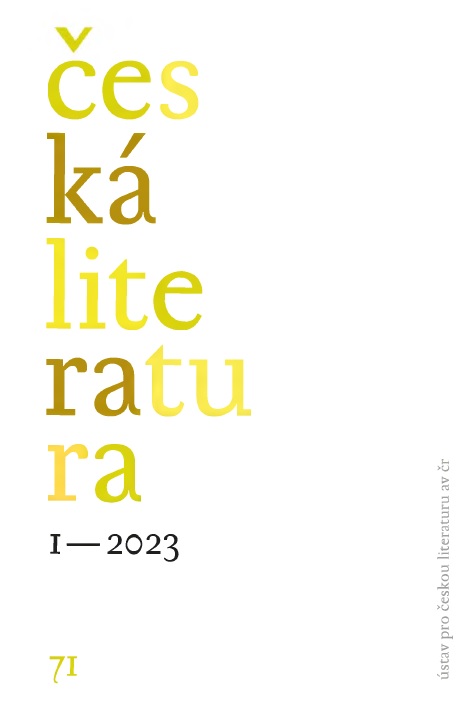Jan Neruda padesátých a šedesátých let jako baladik nejistota životního určení a smysl moderní literatury
Jan Neruda as a balladeer in the 1850s and 1860s The uncertainty of life’s destination and the meaning of modern literature The present study deals with Neruda’s authorial work on certain themes and (balladic) narratives. Broader intertextual and com
Author(s): Eva Blinková PelánováSubject(s): Language and Literature Studies, Studies of Literature, Czech Literature, Russian Literature
Published by: AV ČR - Akademie věd České republiky - Ústav pro českou literaturu
Keywords: pre-Romantic literary ballad; prose with distinctive plot construction; fantasy literature; everyday life; “unnecessary people”, Russian literature; J. Neruda; J. W. Goethe; K. J. Erben; C. Baudelaire
Summary/Abstract: Jan Neruda as a balladeer in the 1850s and 1860s The uncertainty of life’s destination and the meaning of modern literature The present study deals with Neruda’s authorial work on certain themes and (balladic) narratives. Broader intertextual and comparative interrogation takes into account the emergence of the pre-romantic or sentimental ballad (with focus on texts by Bürger, Goethe and Poe). Balladicity, as we call the discussed feature of Neruda’s own poetics, makes it possible to link up the interpretive starting points available for the Tales of the Lesser Quarter and the Arabesques with the author’s poetry, as we demonstrate in his Books of Verse. In light of several interpretative surveys and Baudelaire’s approach to quotidianity and modernity, the study concludes by Neruda’s idea of a historically conditioned and humanly valid artistic “truth”.
Journal: Česká literatura
- Issue Year: 71/2023
- Issue No: 1
- Page Range: 24-51
- Page Count: 28
- Language: Czech

